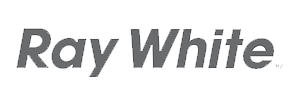 Since the coroner’s report about two-year-old Emma-Lita Bourne in June 2015 found her cold, damp Housing New Zealand property played a part in her death, minimum insulation standards in rentals have taken the spotlight in parliament and the media. This has prompted a tenancy law change. The Residential Tenancies Act 1986 now includes minimum standards for insulation in rental properties.
Since the coroner’s report about two-year-old Emma-Lita Bourne in June 2015 found her cold, damp Housing New Zealand property played a part in her death, minimum insulation standards in rentals have taken the spotlight in parliament and the media. This has prompted a tenancy law change. The Residential Tenancies Act 1986 now includes minimum standards for insulation in rental properties.
Changes to the Residential Tenancies Act 1986 have set minimum standards for insulation in rental properties, to ensure everyone living in them can stay warm, dry and healthy. If there is already underfloor and ceiling insulation installed, it will pay to have it checked to ensure it meets new R-value levels.
New insulation standards for rentals based on location
Houses can lose around 40 per cent of heat through the ceiling and 15 per cent through the floors. That’s heat people are paying for and simply not able to enjoy. Warmer, drier homes means people need fewer sick days and less time off. Healthier tenants are probably more productive and therefore able to keep paying their rent.
Obviously properties in Auckland and the top of the North Island will be warmer than properties in Canterbury and Otago, and so will require less insulation. Auckland, Northland and coastal areas of the North Island must have R 2.9 ceiling insulation and R 1.3 underfloor. Inland areas of the North Island around Tokoroa, Taumarunui, Taihape and Taupo share the same new requirements as the rest of the South Island i.e. ceiling insulation must be R 3.3 and underfloor R 1.3.
Deadline for complying with new insulation standards
If you lease properties to Housing New Zealand tenants or are a community housing provider, then those properties must be insulated to the new minimum standards by 1 July 2016. All other rental properties have a little more time, and must be compliant by 1 July 2019.
There’s nothing stopping you from installing the insulation yourself, but you may face insurance or liability consequences if it’s installed incorrectly or doesn’t meet the new minimum standards. Most insulation installers will give you a free quote or assessment to see how much insulation your property needs, and will issue you with a Certificate of Compliance after the insulation is installed, so you can show your insurance provider and Tenancy Services that your properties are up to scratch.
Exceptions to minimum insulation standards for rented houses
Currently there are a few exceptions to the new insulation requirements:
- If there isn’t enough ceiling space or it’s impractical to retrofit insulation you can avoid insulating some areas, which is expected to exempt 100,000 rental properties.
- if you’re already planning major renovations or demolishing the property and can show the necessary building or resource consents you won’t be penalised for not having insulation installed.
The Healthy Homes Guarantee Bill
The Labour Party’s Healthy Homes Guarantee Bill, currently before parliament would also set minimum standards for rental property insulation. Which exact specifications and R ratings haven’t been set, it would require rental housing to be insulated to 2008 standards with no exceptions. This bill goes further, and if passed would force landlords to install heat pumps or an equivalent cost-effective heating option.
National, Act, and the New Zealand Property Investors Federation strongly oppose the extra measures included in the Healthy Homes Guarantee Bill, saying the extra costs would force rents up and remove much needed rental properties from the market. Either way, the government’s new Residential Tenancies Act will still expect property investors to have inspected and insulated their rentals before July 1 2019.
Download our A-Z guide is a handy guide to help you navigate the property investment world, and make buying, leasing, and selling homes that much easier:










